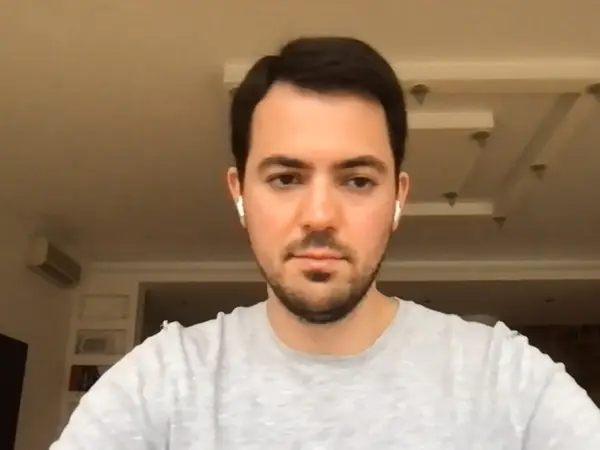Russia and Iran are allies in the Ukraine war and it won’t be a surprise if Tehran supplies drones to Moscow, an adviser to President Volodymyr Zelensky says.
In an interview with Iran International on Monday, Alexander Rodnyansky an economist at Cambridge University commented on the possible provisioning of Iranian military drones.
“We have to view it in that perspective that Iran and Russia are allies in this conflict. In Ukraine, we obviously have no illusions about this. So, we are obviously very aware of what's going on, and we're going to be very careful about our relationship with Iran and what we hear from Iranian authorities when it comes to Ukraine,” he told Iran International.
United States National Security Adviser Jake Sullivan warned earlier this month that Iran was planning to sell drones to Russia to be deployed in Ukraine. US officials followed up by more warnings about a possible deal that could cause more civilian deaths.
Rodnyansky argued that he sees Russia increasingly resembling the authoritarian regime in Iran in recent years. Saying that repression and other dictatorial traits have been adopted by Moscow, he said, “Now it has really become a full autocracy, you could almost say a dictatorship…we should be very cognizant of the fact that Russia under its current leadership is trying to build the Iranian type of model as a state.”
He went on to say, “It's this repressive type of regime that uses deception, lies, manipulation and terror constantly to stay in power and pursue its agenda.”
He argued that close ties between Moscow and Tehran and the possibility of a drone deal should be viewed from this perspective, although Iranian officials have been trying to deny reports of arms transfers.
“We know what type of regime it is, and we know that just as in Russia, you can't really trust any single word that comes out of the (Iranian) officials' mouths,” Rodnyansky said, underlining that Ukraine will believe Iranian assurances only when it sees concrete proof.
When the Russian invasion of Ukraine began in February, Iran tried to exhibit neutrality, calling for an end to hostilities, but blaming the West for triggering the war by expanding NATO. But since then, Tehran has adopted a more aggressive tone toward the West as it has refused to accept a nuclear deal offered in the Vienna talks to revive the 2015 agreement known as the JCPOA.
On July 24, two Iranian hardliner newspapers called for standing with Russia in the Ukraine war, after the country’s Supreme Leader Ali Khamenei threw his support behind Putin last week when the Russian leader visited Tehran. Khamenei called the attack on Ukraine a “praiseworthy initiative.” One newspaper close to the Revolutionary Guard called for “pre-emptive” war against NATO, arguing that if the West wins in Ukraine, Iran will be the next target.
Asked about this statement, Rodnyansky said it is nothing more than what Russia has been trying to advance even since before it commenced its invasion.
“And now we hear Iran is just repeating that exact same narrative. And that tells us that these regimes are very much in line, in sync, and very much allied when it comes to this conflict and the current war in Ukraine, and the conflict with the West,” he argued.
